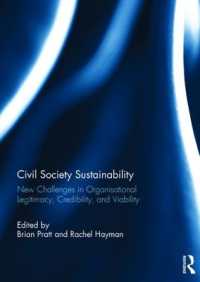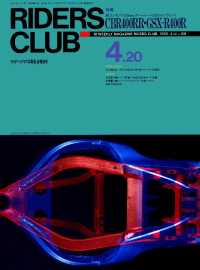Full Description
This timely collection explores the role of digital technology in language education and assessment during the COVID-19 pandemic. It recognises the unique pressures which the COVID-19 pandemic placed on assessment in language education, and examines the forced shift in assessment strategies to go online, the existing shortfalls, as well as unique affordances of technology-assisted L2 assessment.
By showcasing international examples of successful digital and computer-assisted proficiency and skills testing, the volume addresses theoretical and practical concerns relating to test validity, reliability, ethics, and student experience in a range of testing contexts. Particular attention is given to identifying lessons and implications for future research and practice, and the challenges of implementing unplanned computer-assisted language assessment during a crisis.
Insightfully unpacking the 'lessons learned' from COVID and its impact on the acceleration of the shift towards online course and assessment delivery, it offers important guidelines for navigating assessment in different instructional settings in times of crisis. It will appeal to scholars, researchers, educators, and faculty with interests in educational measurement, digital education and technology, and language assessment and testing.
Contents
Foreword by Paula Winke
Section I: Theoretical and Methodological Concerns in Online L2 Assessment
Chapter 1: Technology in language assessment: An overview
Karim Sadeghi
Chapter 2: Seeking empirical evidence to support online test validation: Building on the IELTS Indicator assessment model
Tony Clark, Martine Holland, and Richard Spiby
Chapter 3: Emergency remote assessment (ERA) narratives from the UK English for Academic Purposes (EAP) sector: Examining validity and longevity of technology-driven solutions
Emma Bruce and Heléna Stakounis
Chapter 4: Language testing and assessment in COVID-19 pandemic crisis
Hossein Farhady
Chapter 5: Argument-based validation in the time of the COVID-19 pandemic
Erik Voss
Chapter 6: Assessment without borders: Modernising placement tests for diverse contexts
Mahmoud Amer and María J. Cabrera-Puche
Section II: Reactions to L2 E-Assessment During the Covid-19 Pandemic
Chapter 7: Responding to the pandemic in New Zealand: Opportunities and challenges for language assessment in one tertiary institution
Martin East, Deborah Walker-Morrison, and Viviane Lelièvre-Lopes
Chapter 8: Online remote (at-home) assessment of language modules during COVID-19: Changes, challenges, and students' perceptions
Isabel Balteiro
Chapter 9: Assessing university students' writing development and performance during remote instruction
Bahiyyih Hardacre
Chapter 10: Fairness in remote English placement testing at Iowa State University during the COVID-19 pandemic
Reza Neiriz, Shireen Baghestani, Ananda Astrini Muhammad, and Jim Ranalli
Chapter 11: Integration of data-driven learning and assessment through a multimodal corpus of learning objects at the time of the COVID-19 pandemic
María Luisa Carrió-Pastor
Section III: Managing L2 Assessment at the Time of the Crisis: The Way Forward
Chapter 12: Test usefulness of E-Portfolios: An alternative approach during and beyond the pandemic
Ricky Lam
Chapter 13: Can interactions happen across the screens?: The use of videoconferencing technology in assessing second language pragmatic competence
Shishi Zhang and Talia Isaacs
Chapter 14: The use of technology for redesigning L2 language assessments: Tasks, rubrics, and feedback in emergency remote teaching contexts
Ana Maria Ducasse
Chapter 15: Rethinking the online placement test for a college-level Japanese language program during the COVID-19 pandemic
Akiko Imamura, Catherine Ryu, and Mariko Kawaguchi
Chapter 16: Conclusion: Lesson learned and lessons not learned
Karim Sadeghi







